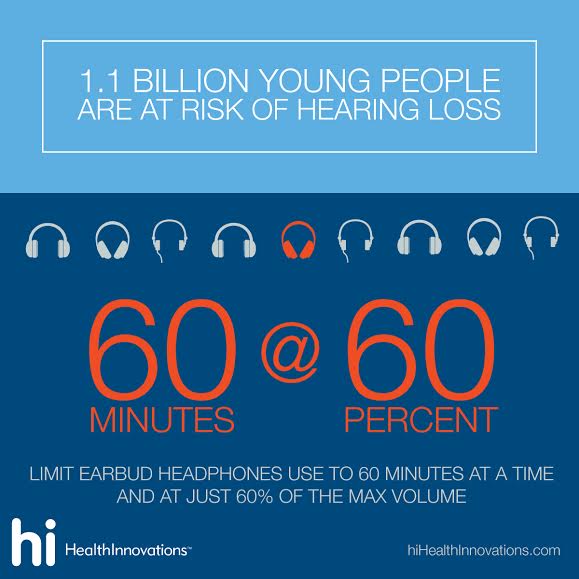The below article is a sponsored post from Health Innovations.
Labor Day is just around the corner, and for many families that means backyard BBQs, family road trips and a respite from work. For some people, however, these usually enjoyable activities are hindered by hearing loss, a condition that affects more than 48 million people nationwide.
Commonly associated with older Americans, hearing loss affects people of working age as well: about 1.1 billion young adults worldwide are at risk of hearing loss, according to a recent study by the World Health Organization. The growing prevalence of hearing loss is being spurred by an aging population and exposure to loud sounds, including the frequent use of earbuds that can over time contribute to noise-induced hearing loss.
Hearing loss has many consequences, affecting Americans personally and professionally. Approximately 60 percent of people with hearing loss are of working age. Left untreated, hearing loss can reduce earnings by as much as $30,000 a year, and people with this condition are nearly twice as likely to be unemployed as their peers who use hearing aids. According to a 2013 survey, 30 percent of employees said they suspect they have a hearing problem but have not sought treatment.
Hearing loss is especially common among employees exposed to loud noise levels at work, including professions such as military and law enforcement, construction, and agriculture. About 22 million employees nationwide are exposed to hazardous noise levels on the job, according to a recent report from the Occupational Health & Safety Administration (OSHA).
If you or a loved one is experiencing hearing loss, now is the time for treatment. Early signs of hearing loss include turning up the TV or radio to levels others consider too loud, having trouble hearing in noisy environments or difficulty hearing on the phone.
Here are tips to improve communications at work place and at play:
- Before a meeting, request an agenda that will make it easier to follow the discussion. Ask for a meeting recap or partner with co-workers to share notes.
- Select a place at the table that enables you to see coworkers’ faces and watch lips to help enhance speech understanding.
- Rather than nodding along to a conversation you can’t follow, politely stop the discussion and ask the speaker to rephrase what was said.
- If recommended, consider wearing hearing aids, which help people hear soft sounds and keep loud noises at a comfortable level.
To help prevent hearing loss, here are some helpful tips:
- For people consistently exposed to noise, especially while on the job, consider options such as ear muffs or custom earplugs that offer significant protection.
- When attending sports events or music concerts, use ear protection such as inexpensive ear plugs that are available at pharmacies and other retail stores.
- Limit exposure to loud sounds – including music, lawn mowers and motorcycles – to no more than 20 minutes at a time.
- Follow the 60/60 rule: use earbuds for no more than 60 minutes at a time and at 60 percent of the device’s maximum volume.
Preserving hearing health, or obtaining treatment if necessary, is crucial for Americans both in and out of the workforce. Following these tips will help people maintain their hearing health and, as a result, improve their overall health and ability to work.

